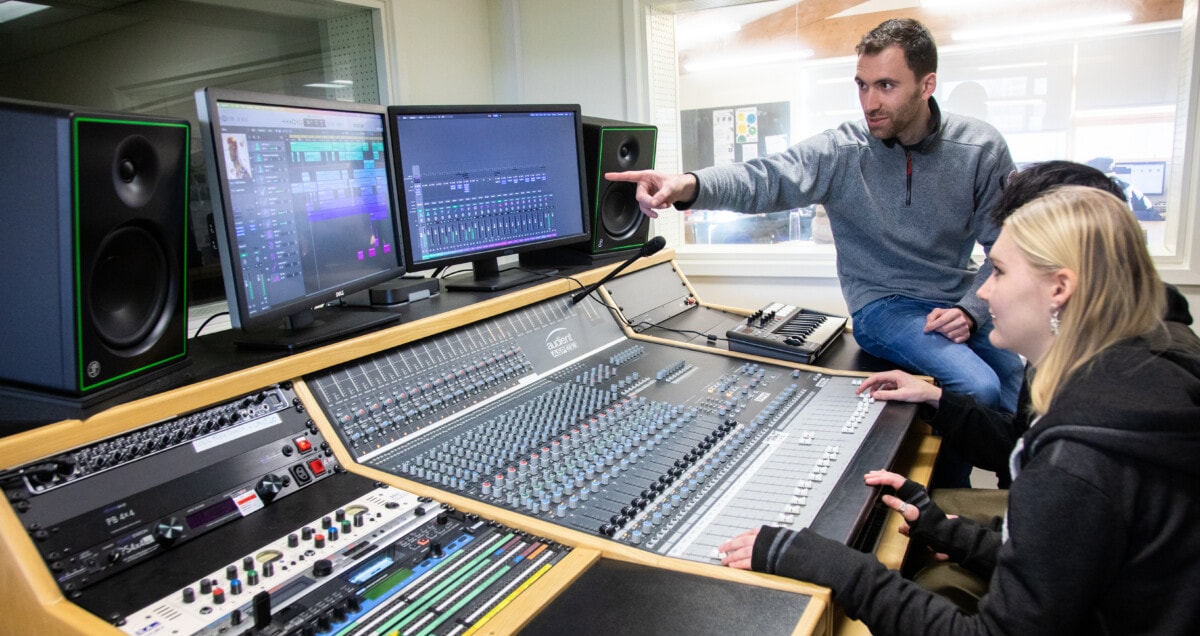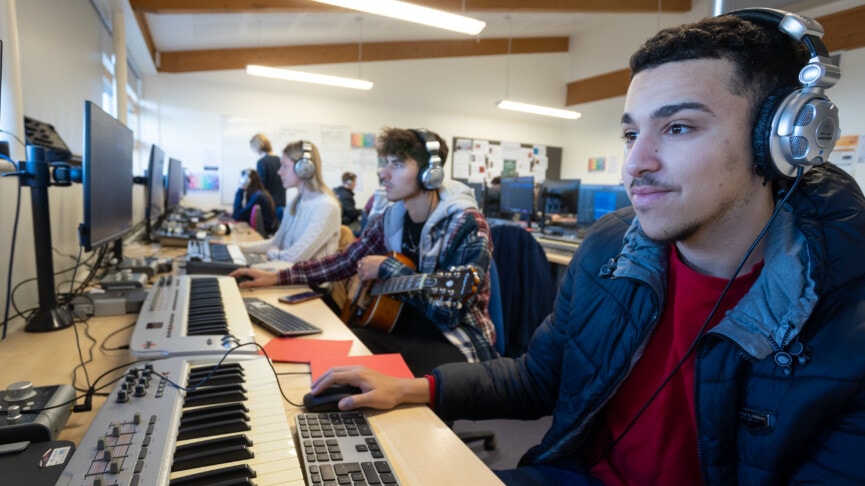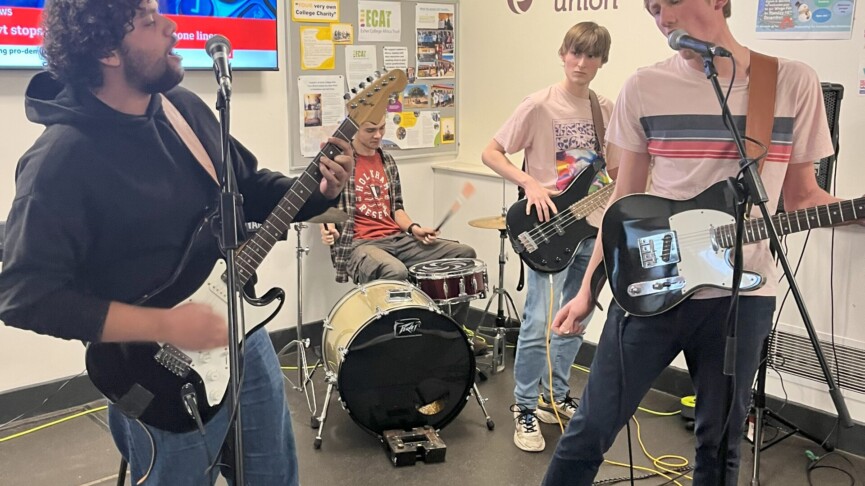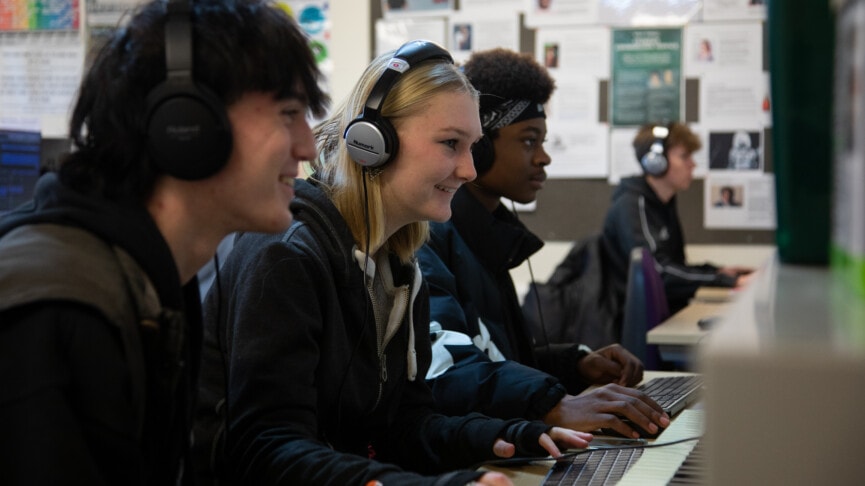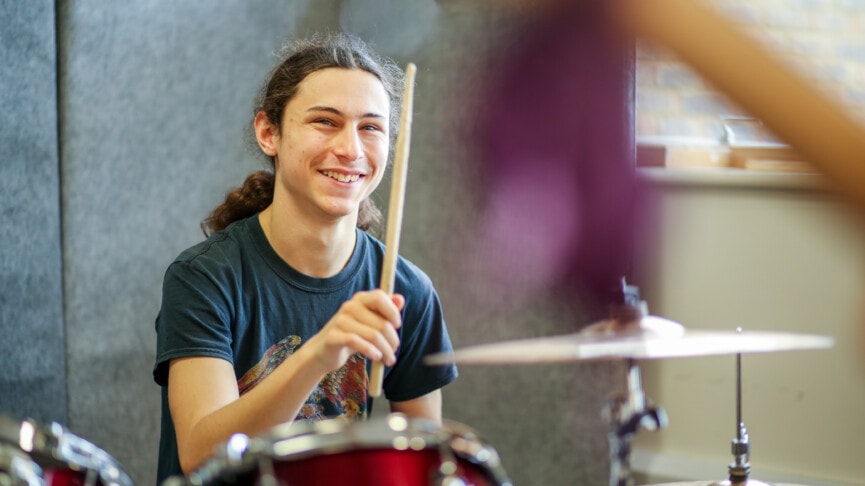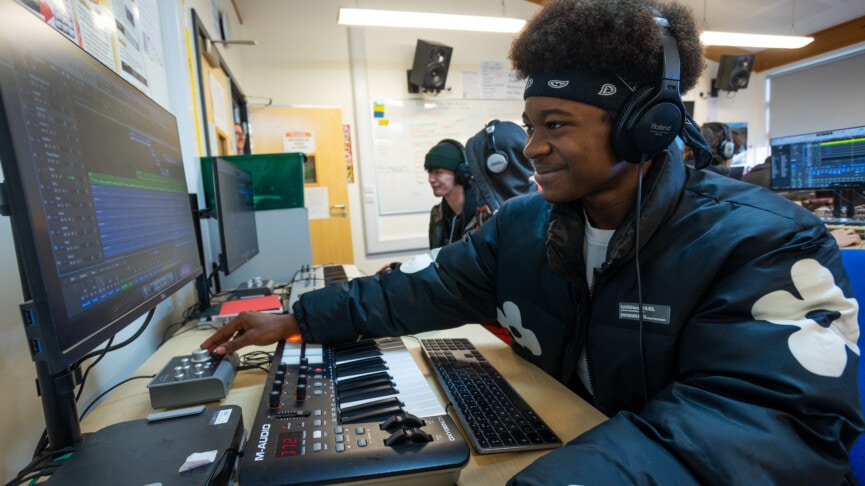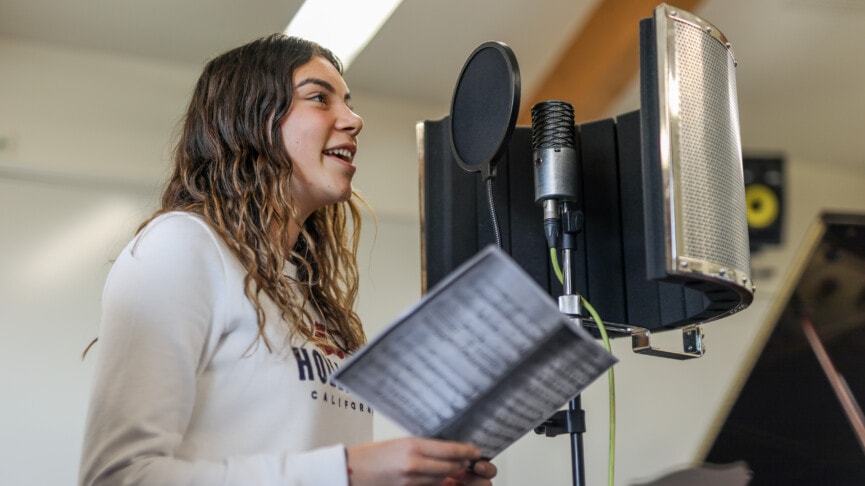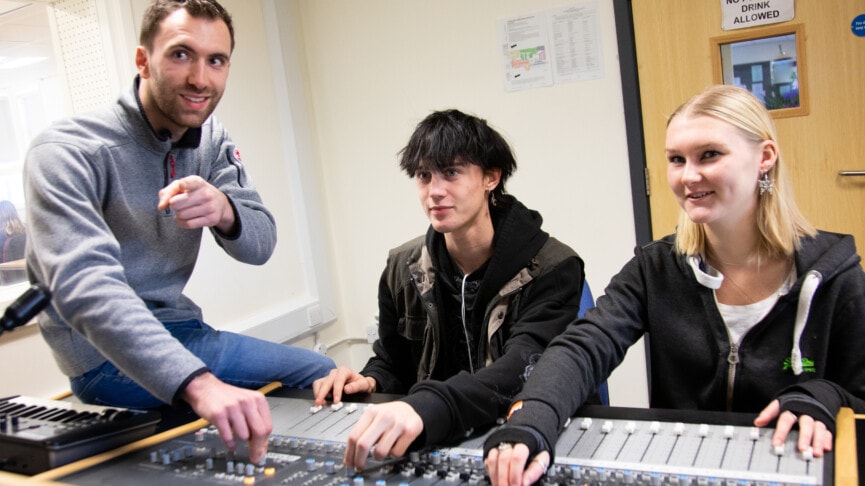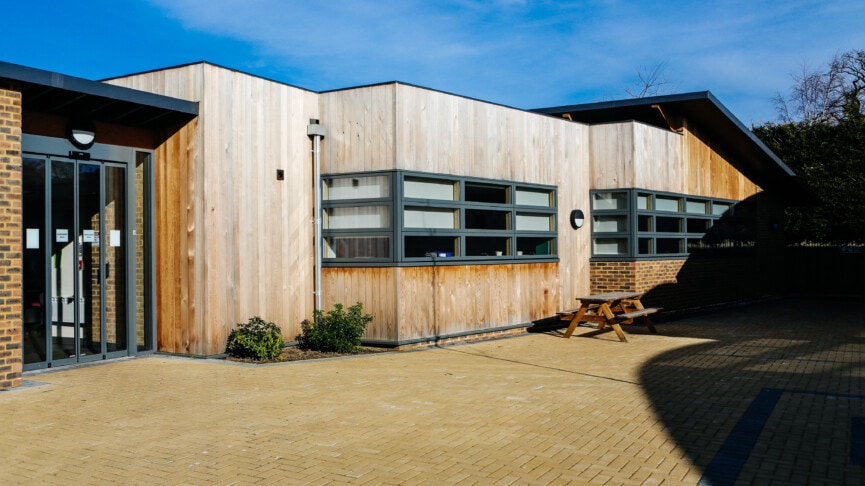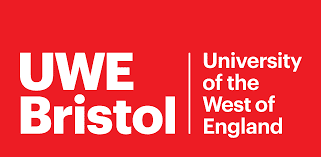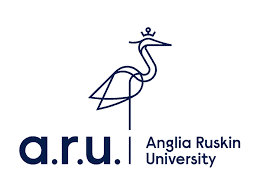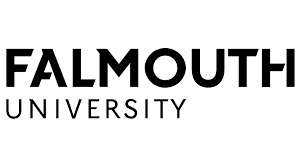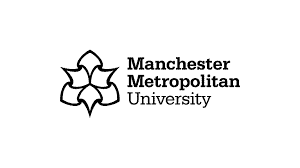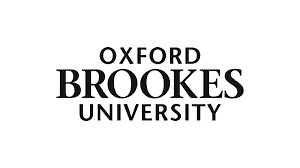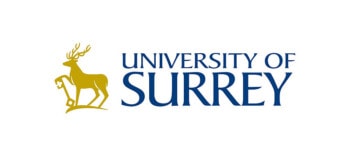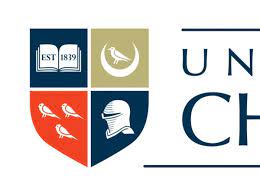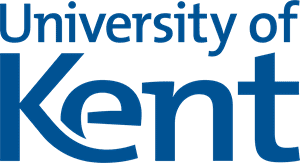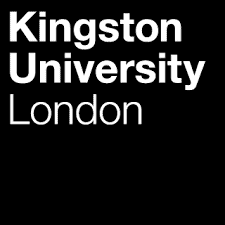Overview
Music (Production Pathway) BTEC Level 3 Foundation Diploma, equivalent to 1.5 A Levels.
The Music Production BTEC is a nationally recognised and respected applied learning qualification. This two-year course is for students who want to develop their skills with modules in studio recording, creative musical production and using music technology in live events.
It is a practical and technological course, and will prepare you for a wide range of job opportunities in the Music Industry such as a performer, recording and live sound engineer, producer, or studio technician.
Entry Requirements
In addition to the College Entry Requirements, to qualify for this course you will also need:
- The ability to play an instrument(s) and/or sing, and to read standard music notation.
- Experience of using a Digital Audio Workstation such as Garage Band or FL studio.
- Ability to play an instrument or sing, this can include use of technology as an instrument.
- Ability to read music and or guitar/drum tab.
It is also desirable to have:
- GCSE Music or BTEC First/BTEC Technical /Cambridge National Level 2 Merit in Music or Music Technology.
- Good aural skills, ie the ability to hear what is musically accurate and what is not.
Course Details
Over the two-year course you will study the following units;
- Assessment Unit B4: Studio Recording
In this module you will demonstrate an understanding of studio recording equipment, apply multi-track recording techniques and apply mixing skills to a recording.
You will learn how to:
* use our professional standard Recording Studio (equipped with Audient ASP4816 desk).
* use different microphones, cables and connectors, audio interfaces and headphones/speakers.
* set up for a variety of recordings, including voices, instruments, piano, drums, guitars, and orchestral instruments.
* manage tracks, find, solve, edit, and correct faults in recordings, develop mixing skills by using effects, dynamics, volume automation, panning and EQ, and bounce down within the Logic Pro X DAW programme. - Assessment Unit B5: Creating Musical Material through Production
In this module you will demonstrate an understanding of music sequencing techniques and develop musical material in response to a brief, apply creative processes and sequencing techniques as you develop musical material. You will learn:
* the functions and techniques involved within Logic X Pro software.
* musical approaches, using a variety of rhythms and pitch, structure, song writing, chord progressions, texture, arranging and remixing material.
* to create a music projects for film, TV, Games or Adverts. - Assessment Unit B6: Music Technology for Live Events
In this module you will plan to use music technology at a live event. Learn and understand how to select, set up and use equipment for live events, and apply skills when operating music technology equipment at a live event. In addition you will;
* use technical and logistical skills.
* develop professional skills in working with others, communicating with artists, and organising and planning the event, including health and safety considerations.
* learn to critically analyse and present an evaluation of your production skills, justifying your creative choices after the event.
- Assessment Unit C7: The Music Industry
In this module you will develop your understanding of the way the Music Industry has developed. You will:
* learn how different sectors operate and identify the potential employment opportunities that might be offered in the future.
* gain the sills to navigate through the music business.
* understand the development of recording techniques, music publishing and live music trends, including changes in youth culture.
* discover the wide range of job opportunities, roles and responsibilities, contracts from workshops, talks and visits.
* study the present and potential future developments of the contemporary music industry looking at digital music, revenue, social media promotion and streaming, and identifying opportunities and threats to the industry.
Assessment
Assessment is through internally assessed coursework in accordance with National grading criteria and assessed by course tutors. You will complete research and written assignments, and you will build a portfolio of practical skills and performances including a live performance that you will manage.
Each unit is graded, and students will achieve a pass, merit or distinction/distinction* depending on their performance on individual units.
There is no examination.
Subject Combinations
Music Production BTEC combines well with Music A Level, as skills learnt in both subjects are very complementary. It can also work well alongside combinations as diverse as Mathematics and Physics A level, or Media Studies A Level.
University Destinations
Music Production BTEC is a highly respected qualification, with 90% of students at Esher going on to university.
Here are some typical university destinations that our Music students go to. Click on a destination to see some examples of courses they may have taken;
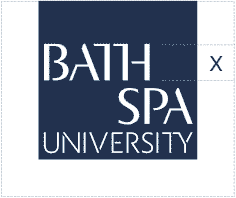
Bath Spa University
Typical courses: Commercial Music / Creative Music Technology (Games and Interactive Media)
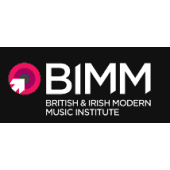
Brighton Institute of Modern Music
Typical courses: Popular Music Performance / Song Writing / Music and Sound Production
Careers
There are many opportunities for further study at Higher Education institutions, and many career possibilities for those proficient in music production.
The Foundation Diploma is widely accepted by higher education providers and continues to provide valuable experience and preparation for students aiming for higher education in the subject. Potential careers include acoustic designers, audio engineers, record producers, performers and songwriters, and teachers. Many employers are interested in music for its artistic and creative aspects, which can also lead potential employees into fields such as media, marketing, TV and film.
Music at degree level is incredibly varied from institution to institution, so it is necessary to consider which element of music you want to pursue. There are courses in sound design, audio engineering, creative digital arts, production, contemporary music and performance.
FAQs
What skills will I need and develop on the course?
There is a strong focus on practical skill development, workplace assignment briefs, real-world music and performing arts industry standard experiences for students. There is also a module specifically about the structure of the Music Industry and the different pathways you can take to gain work and experience in the industry. In addition, students can choose a Specialist Music Pathway in their second year to build these skills further.
This course will enable you to study recording, and creative music production, and allow you to develop your individual skills in composing and performing, as you grow your portfolio.
You will learn how to set up, record and run live events using the PA system.
What is the difference between the BTEC Foundation Diploma and Music A Level?
The Foundation Diploma is designed to be practical and evaluative in the approach to planning, selecting, setting up and operating equipment for recording sessions and live events. Practical skills will be gained in multitrack recording and sequencing techniques, and students will be assessed on applying creative processes such as using musical elements and technical skills to develop a piece of music that could be for a range of briefs such as Film, TV, Gaming and Adverts. There is also a module on finding employment opportunities in the Music Industry. All assessments are internally assessed and must be passed to pass the course.
In Music A Level the course is 60% practical and 40% is a written and listening exam. Students must read music and play an instrument to an advanced level. Practical assessments will include composing and creating music to a brief using appropriate harmony, melody, rhythm, and textural devices and complete a solo recital in front of an audience. The written exam which assesses listening skills, context, and historical knowledge of the development of music and the study of different set works, takes place in June of the second year. All Music Students are given practical help and advice on their applications to university, in completing auditions, creating portfolios and writing personal statements.
What will my timetable look like?
You will study this subject for five periods per week and you will be required to be involved in additional rehearsals.
